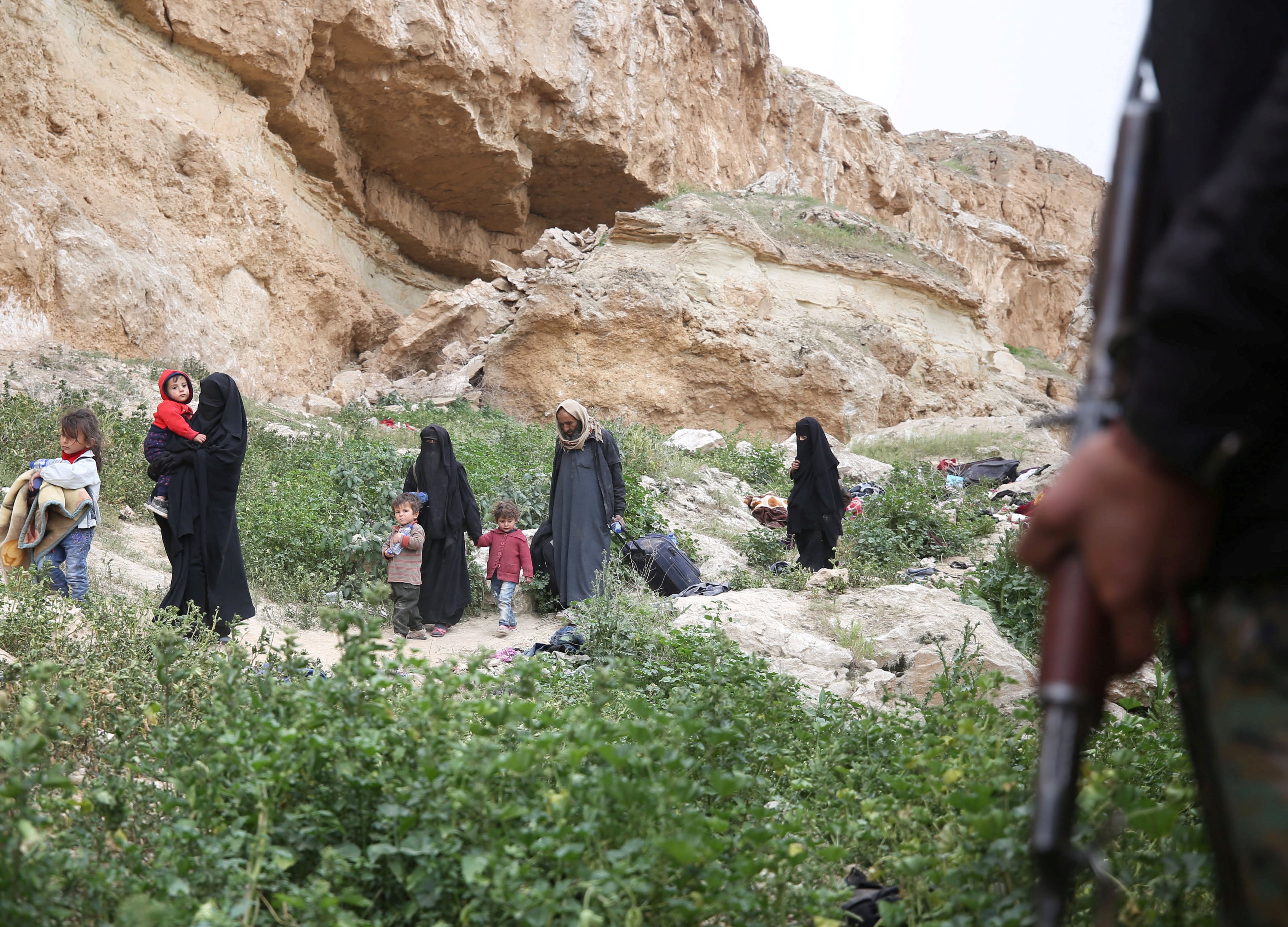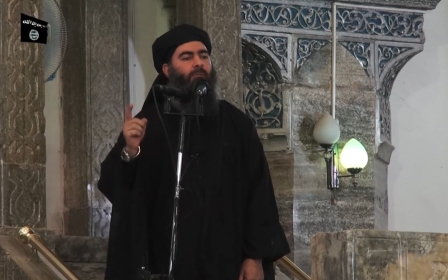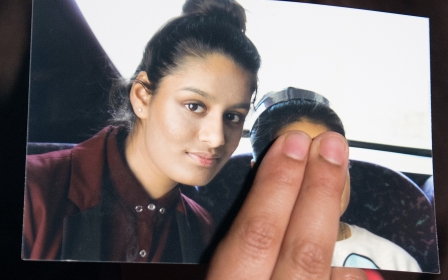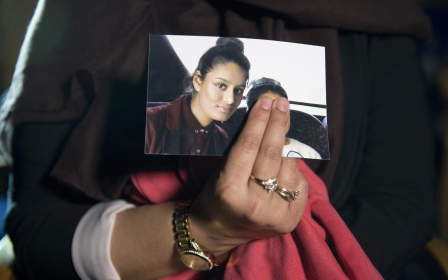Canada must bring home its own from the ruins of Islamic State
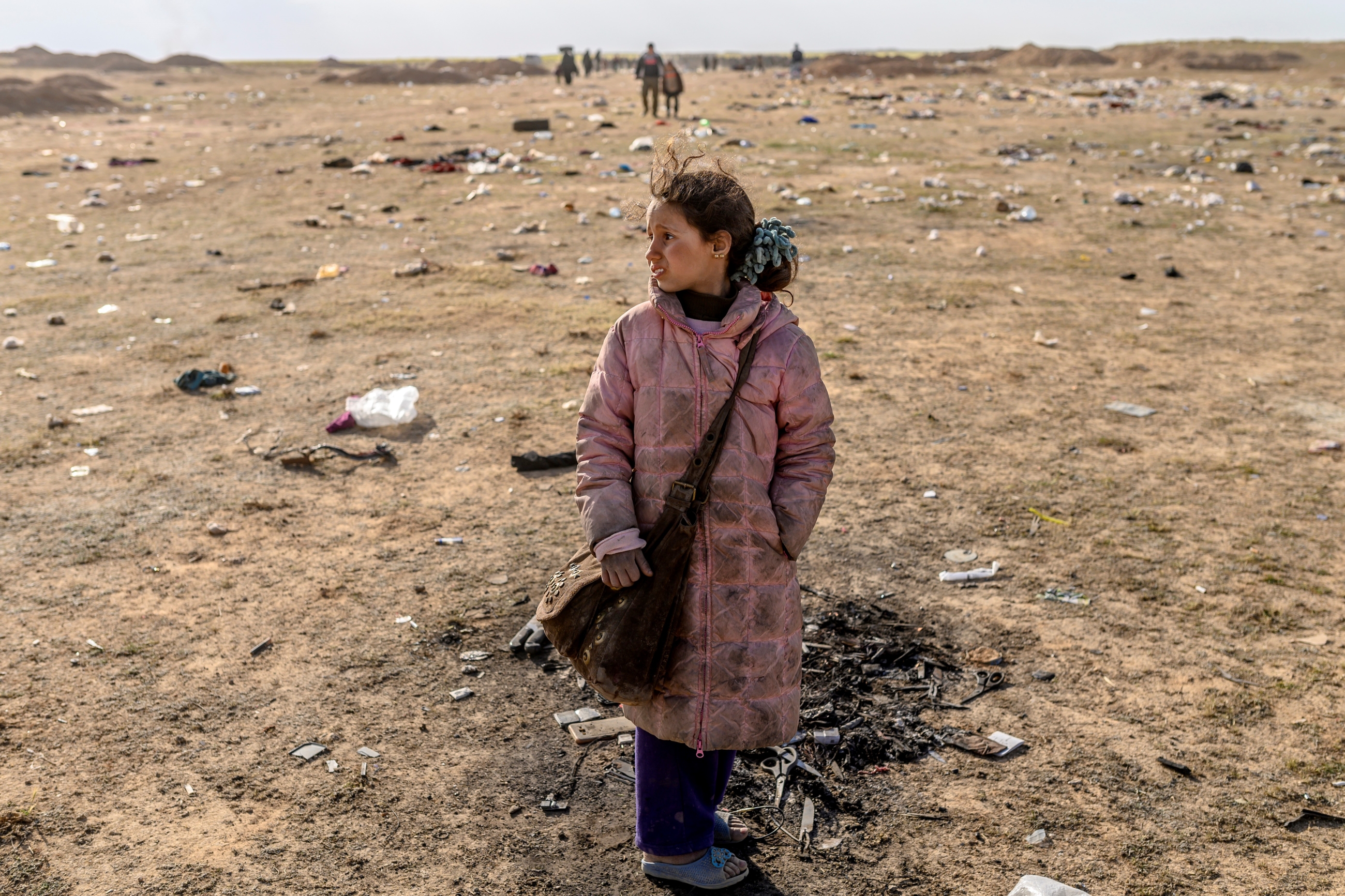
I despise Daesh (the Islamic State group) and its ilk. In fact, I have spent a better part of my life challenging their religious interpretations and practices.
Yet, I believe that Ottawa must repatriate Canadians who answered the Daesh call, because this is the right thing to do if we truly believe in human rights and constitutional principles.
For children's sake
We must learn from the recent death of Jarrar, the newborn son of British-born Shamima Begum, who left the UK as a 15-year-old. The baby died after London revoked Shamima’s citizenship and left them both to ostensibly stew in her hate.
Under British law, Shamima Begum was a child when she left. Now, a British baby is dead for his parents' sins. As British MP Anna Soubry wrote, the UK breached its duty to Jarrar.
New MEE newsletter: Jerusalem Dispatch
Sign up to get the latest insights and analysis on Israel-Palestine, alongside Turkey Unpacked and other MEE newsletters
There are at least 32 Canadians being held by the US-backed Syrian Democratic Forces
The former Conservative MP rightfully argued that Shamima should have been brought to the UK, questioned, and had the law books thrown at her while her son should have been given the "protection and the support that a civilised country provides for all its children."
Kurdish authorities say that 5,000 former alleged IS fighters and their families are being held in makeshift prisons in Iraq.
This includes 1,300 children. Russia repatriated 27 children in February. France has agreed to repatriate around 130 fighters and their families.
Belgians, who composed the largest number of Caliphate fighters per capita, are not feeling particularly welcome. Late last year, going against public opinion, a Belgian court ruled that the government must repatriate its citizens.
In a principled and courageous decision, the Solomonic judge ruled that bringing the children without their mothers – who were convicted in absentia – would violate their human rights. The judge also imposed a daily penalty of 5,000 euros per child against the government until they were returned.
Belgium’s migration secretary said: "We won’t punish young children for their parents’ misdeeds. They have not chosen the Islamic State."
Unfortunately, an appellate court overturned the decision a few weeks ago and now 160 Belgian children are in limbo.
A mature debate
Canadian Public Security Minister Ralph Goodale says the government has not decided what to do.
Canada needs to act before we read about Canadian children dying in Syrian camps.
Rather than having a mature debate about bringing IS members to justice, our politicians appear to be gauging the public mood rather than stepping up
According to CBC, there are at least 32 Canadians being held by the US-backed Syrian Democratic Forces. Dr Alexandra Bain of the Canadian group Families Against Violent Extremism (FAVE) claims that more than half of those held in Syria are under the age of five.
Rather than having a mature and constitutionally rooted debate about bringing Daesh members to justice and dealing with non-combatants as well as women and children, our politicians appear to be gauging the public mood rather than stepping up.
Leadership may require that you sometimes stand up to mobocracy (the whims of the majority) and it always means standing up for constitutionally entrenched rights - even for the detested.
Why bring them back?
Rather than following the examples set by Macedonia, Russia, France, etc, Canada caved into British "arm-twisting" and breached a deal with Kurdish authorities to repatriate Canadian citizens, according to a report by the Guardian.
These individuals went there for reasons ranging from ideological affinity, out of a sense of religious obligation, due to being brainwashed, the promise of adventure, the opportunity to create an Islamic utopia, out of empathy to relieve the suffering of others, while others were duped, forced or taken against their will.
Why should we bring them back?
First, as citizens, they have a right to come back to Canada. Though this does not impose an obligation on Ottawa to take proactive steps to bring back adults, a strong argument can be made that there is a mandatory duty owed to Canadian children.
Indeed, under the common law, our government through the courts have the parens patriae jurisdiction to look out for the best interest and welfare of our children. This is reason alone.
Setting a precedent
Second, contrary to what many people want, under international law we can’t just watch as these people are executed without due process, or held to rot even as evil as they are. Otherwise, as President Trump said correctly, if they are left alone they may continue to create havoc elsewhere.
We must set a precedent and send out a message to any of our citizens who may contemplate such actions in the future that there are consequences for such actions. This is best done by putting those who are culpable on trial.
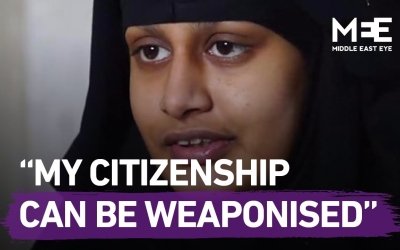
Leaving Canada to participate in a terror group is an offence under the criminal code punishable to a term of up to 10 years. Indeed, as General Lord Richard Dannatt, a former head of the British army, told the Guardian about British fighters:
"They have to be put through due process and imprisoned if that is the right thing to do,” he said. “But I think it is also important that we treat them fairly with justice and tempered with a bit of mercy as well because I think the way we treat them may well have important significance for the way other people view our society.
“We don’t want to see others radicalised and going off overseas in the future. How we treat these people coming back – fairly but firmly – we’ve got to get it right."
We have failed
Third, most of these individuals were born "here" and more importantly were radicalised "here" not "there". We bear part of the responsibility because we - as a society - and our institutions failed in not preventing them from being radicalised and in the case of many women from being groomed as brides.
It is tempting to dehumanise them and easy to "other" them, but let us not forget that we extend full due process rights even to paedophiles, mass murderers and serial killers.
Fourth, some of these individuals may serve as resources to fight radicalisation after they have been de-radicalised, after serving time, if deserved.
As argued in a New York Times op-ed by Bryant Neal Vinas, America’s first Al-Qaeda fighter, these returning fighters “can be a strategic asset" to fight radicalisation if we play it right.
Fifth, western nations, including Canada, pursue criminals to the far corners of the world using extradition treaties and other means. Indeed, we have even engaged in extraordinary rendition and participated in torture of our own citizens when we thought it was necessary. Yet, now it's too difficult to pursue these people?
Of course, it would be disingenuous to argue that traitors who engage in terrorism should be treated the same as other criminals, because the state interests are especially compelling. At the same time, the values engaged in this context - equality, freedom of speech, religion, and association - make it important that we tread in a firm but cautious manner.
It is high time that we engage in reasoned, nuanced and considered debate in a manner consistent with our well-established values, including justice, fairness and compassion.
We cannot base our decisions on emotion, populist fear, hatred or our whims, because then we are no better than them.
The views expressed in this article belong to the author and do not necessarily reflect the editorial policy of Middle East Eye.
Middle East Eye delivers independent and unrivalled coverage and analysis of the Middle East, North Africa and beyond. To learn more about republishing this content and the associated fees, please fill out this form. More about MEE can be found here.



